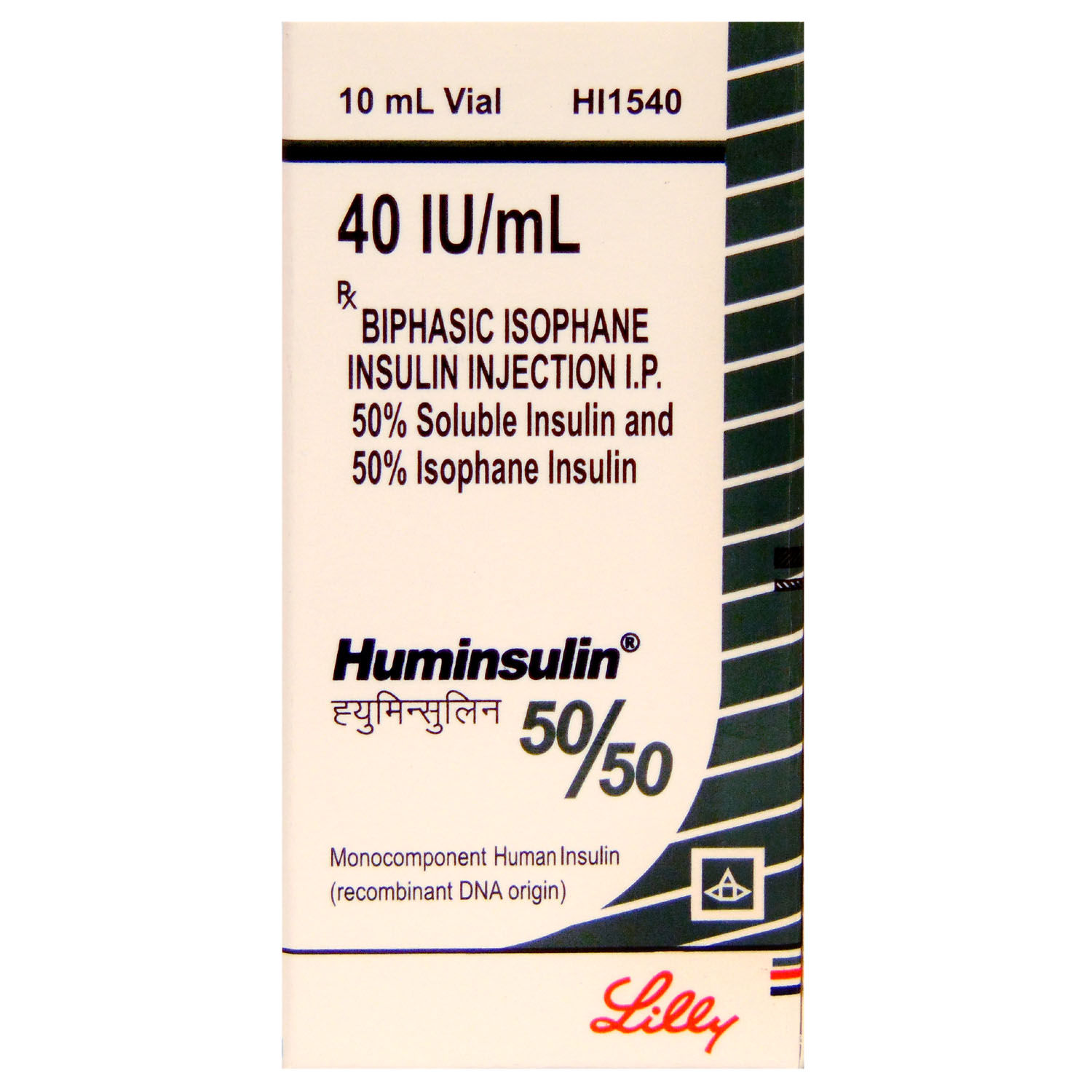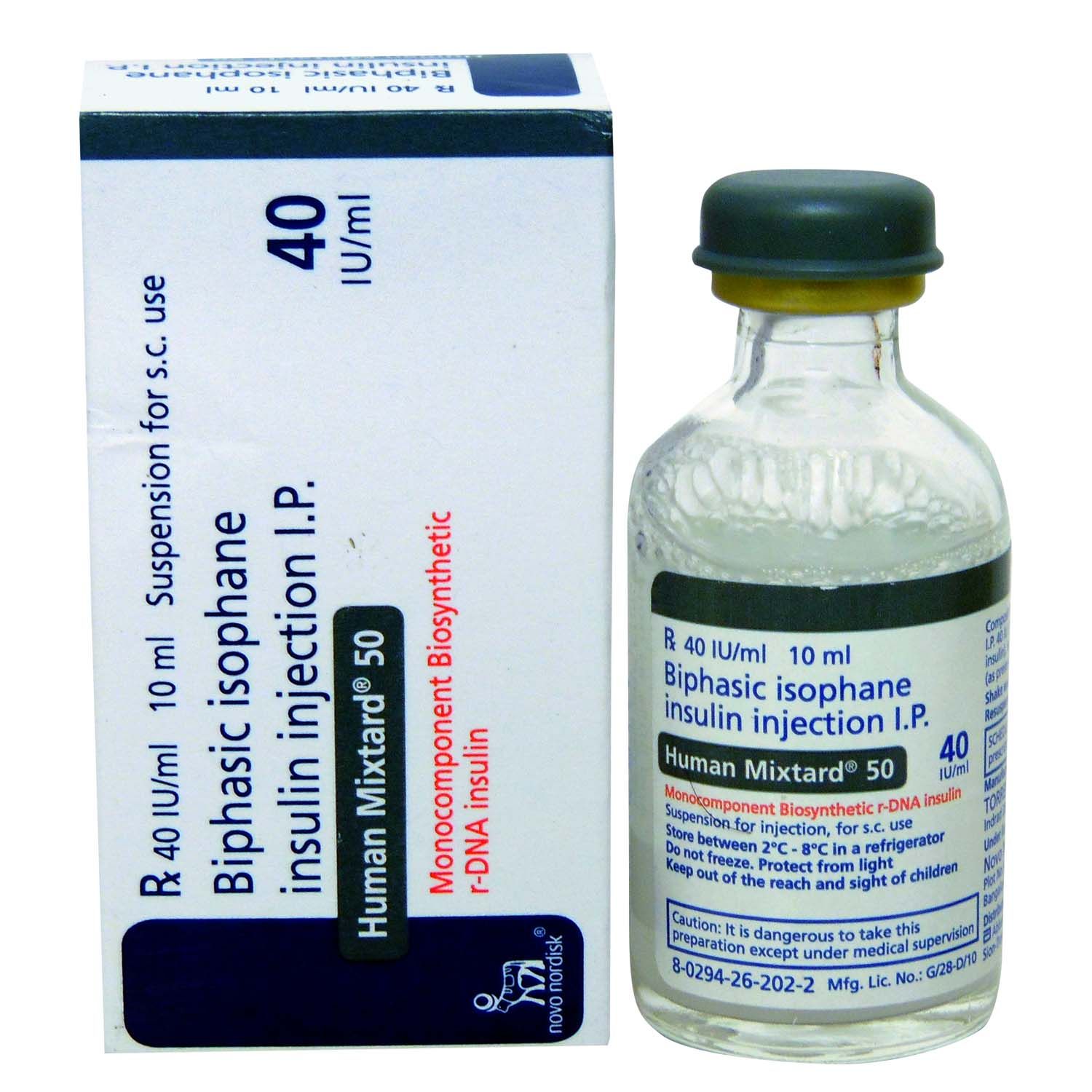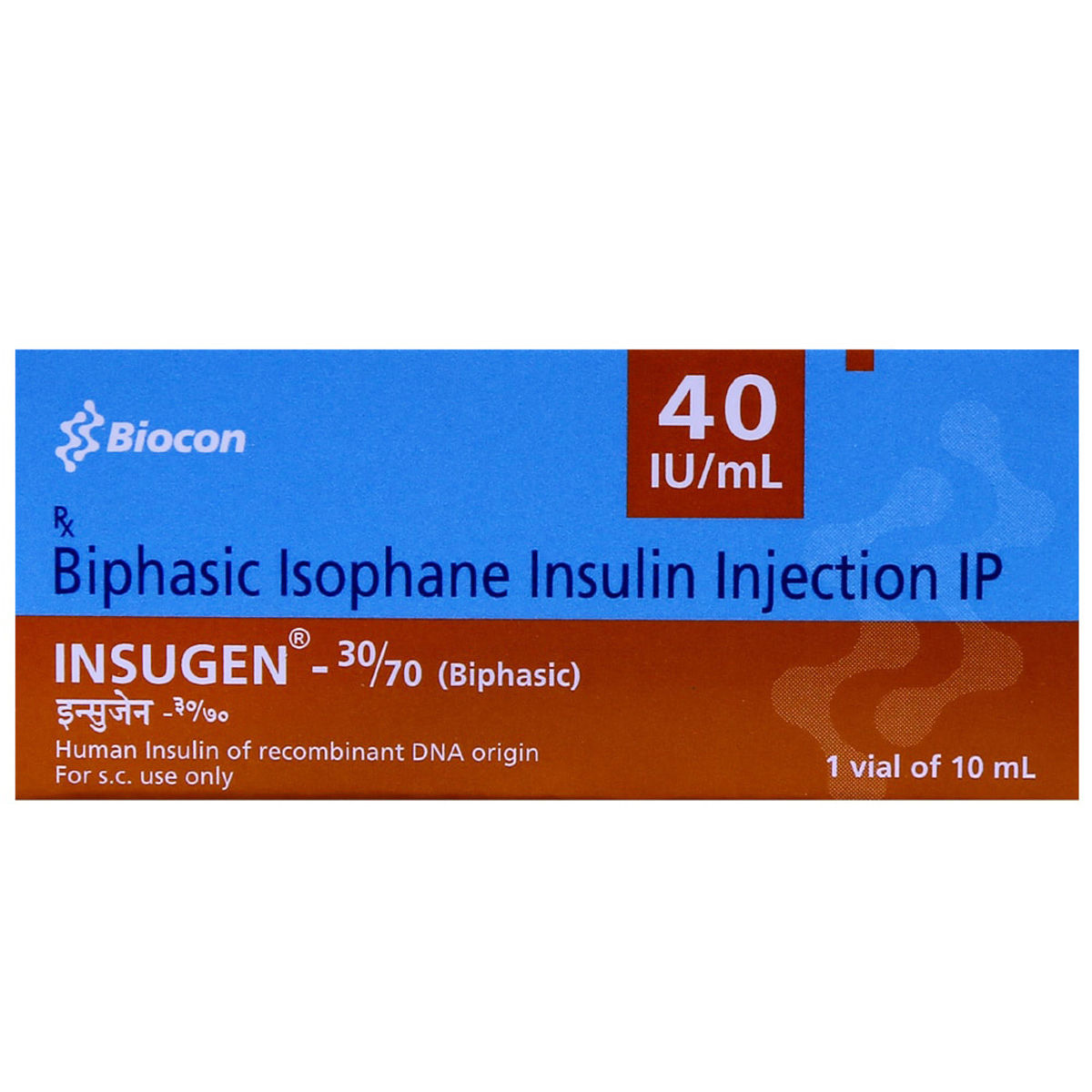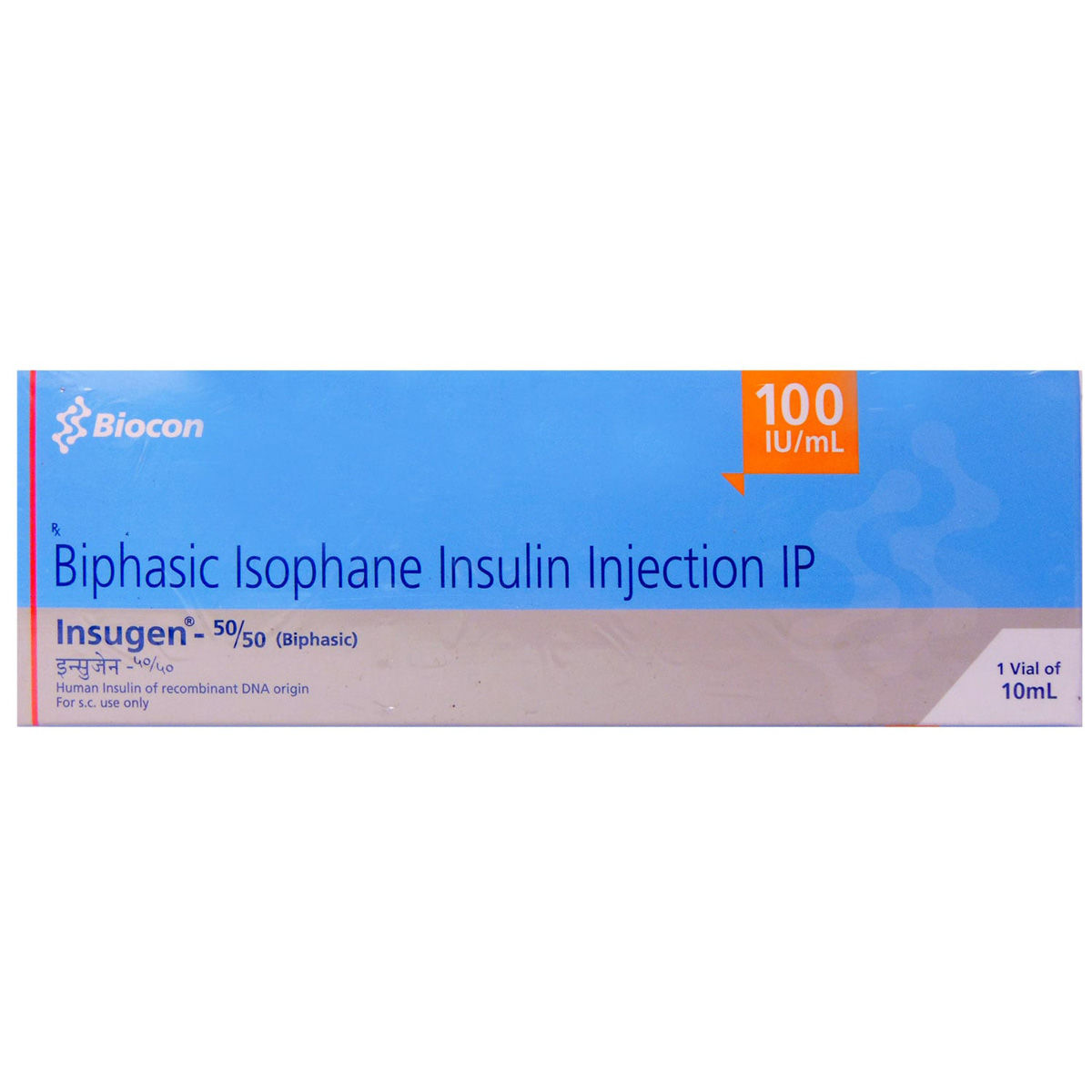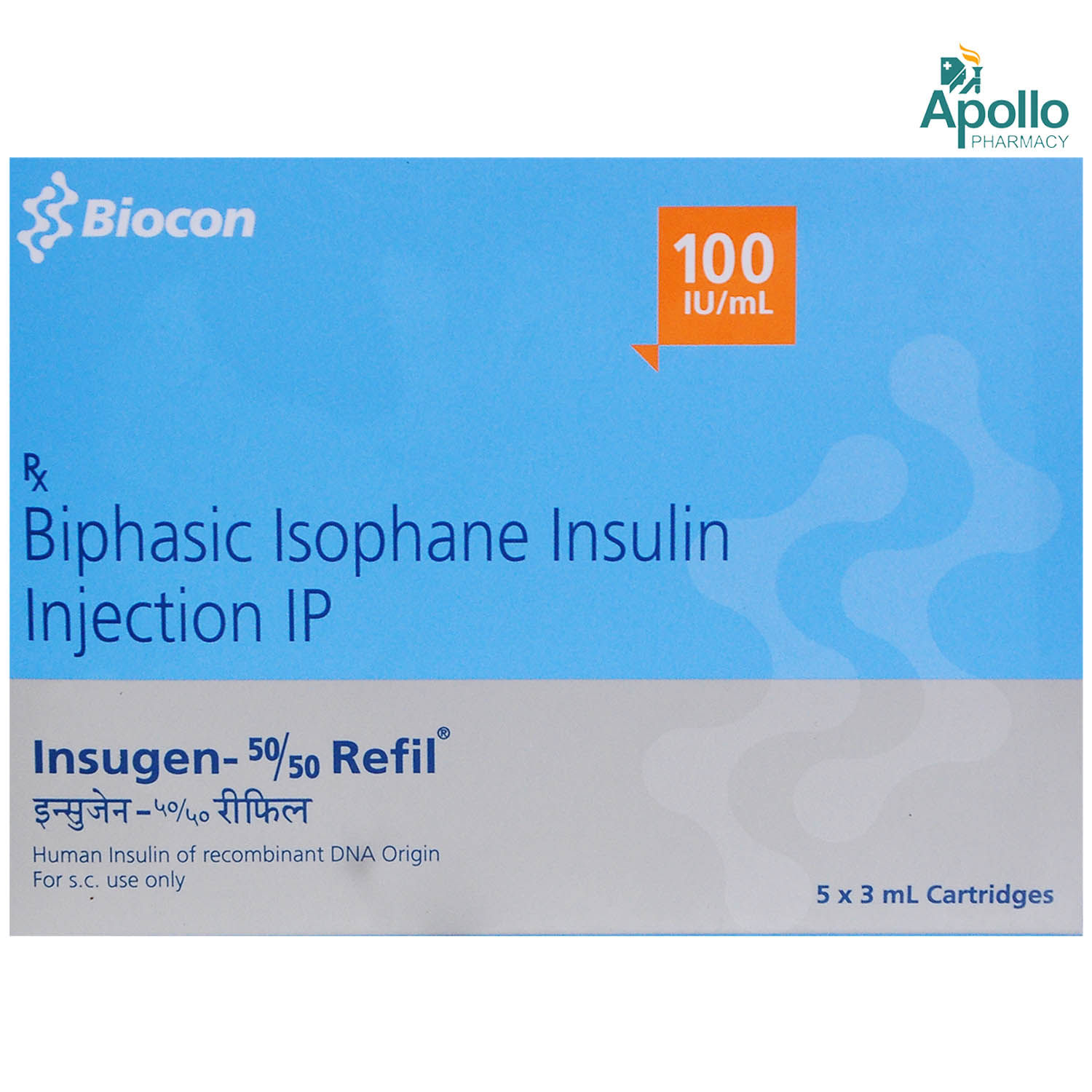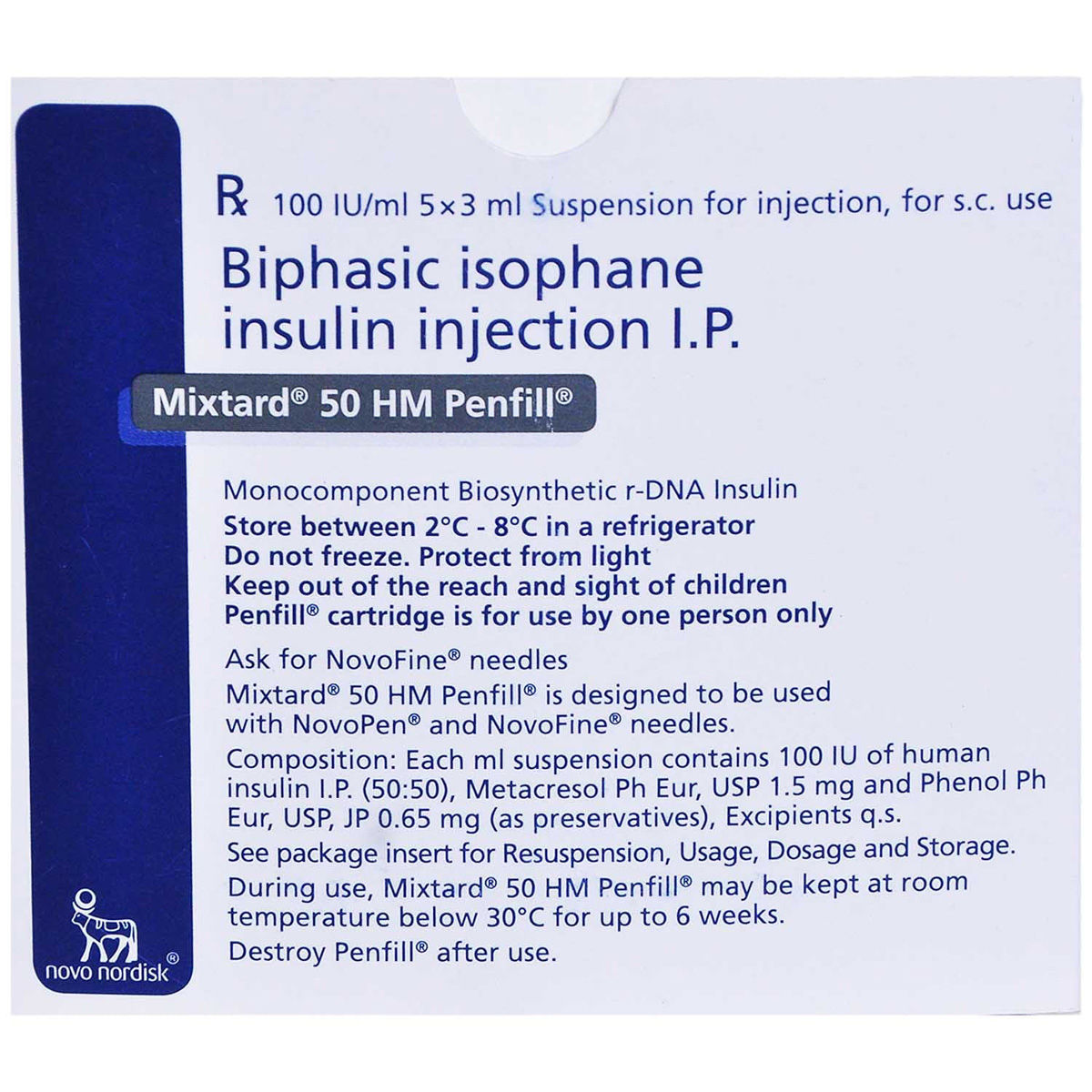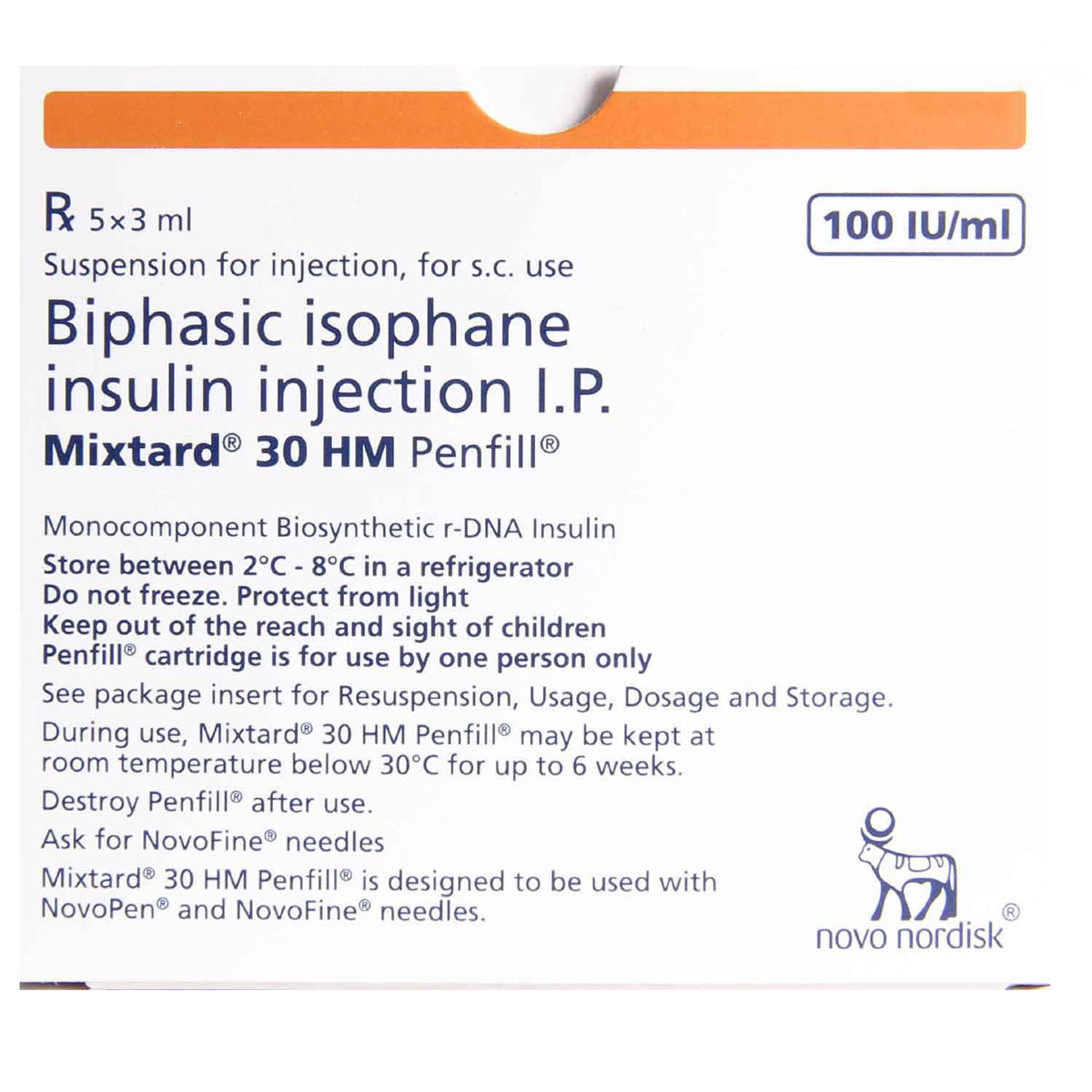Biphasic Isophane Insulin+insulin Human
About Biphasic Isophane Insulin+insulin Human
Biphasic Isophane Insulin+insulin Human is a combination of two medicines, an intermediate-acting and a short-acting type of insulin, primarily used for the treatment of both type 1 and type 2 diabetes mellitus. It maintains blood sugar levels in adults and children. Diabetes mellitus is a condition that affects the way your body processes glucose. In Diabetes Mellitus Type 1, the body does not make enough insulin to control blood sugar levels. In Diabetes Mellitus type 2, either the body stops producing enough insulin (the hormone which helps to decrease sugar levels in the blood) or there is resistance to the action of insulin. As a result, insulin is produced in large amounts but it is not able to act on the organs of the body.
Biphasic Isophane Insulin+insulin Human is a dual-acting insulin that helps to lower the blood sugar (glucose) level by facilitating the uptake of glucose. It is followed by the binding of insulin to the cells of muscle and fat cells thereby inhibiting glucose release from the liver. Thus, together Biphasic Isophane Insulin+insulin Human helps to decrease blood glucose levels after the intake of meals. Besides this, it also prevents the chances of developing serious complications of diabetes like damage of retina (retinopathy), damage of kidney (nephropathy), damage of nerve cells (neuropathy), diabetic foot ulcer and others.
In some cases, injection site reactions may occur, including swelling, pain, itching, redness, and hives. This pain can be minimized by continuous rotation of the injection site after taking Biphasic Isophane Insulin+insulin Human. These local skin reactions usually resolve in a few days to a few weeks. Besides this, you may also experience symptoms of low blood sugar (hypoglycaemia) symptoms like cold sweat, cool pale skin, nervousness or tremor, anxious feeling, unusual tiredness or weakness, confusion, difficulty in concentration, drowsiness, excessive hunger, temporary vision changes, headache, nausea, and palpitation. Most of these side effects of Biphasic Isophane Insulin+insulin Human do not require medical attention and gradually resolve over time. However, if the side effects are persistent, reach out to your doctor.
In type 1 diabetes, untreated high blood sugar levels can lead to a life-threatening condition known as diabetic ketoacidosis. Try not to stop taking this medicine of your own. Let your doctor know about this, as it may cause withdrawal symptoms. Do not take this medicine if you have any low blood glucose levels, kidney, liver, or heart problems, or problems with alcohol or other prescription recreational drugs. Biphasic Isophane Insulin+insulin Human should be given, followed within 30 minutes by a meal or snack containing sugar/glucose (carbohydrates). Liver or kidney disease may reduce the requirement of Biphasic Isophane Insulin+insulin Human. On the other hand, in the conditions of infection or fever requirement of insulin might increase. If you are not well trained to self-administer Biphasic Isophane Insulin+insulin Human, ask a healthcare professional to administer it.
Uses of Biphasic Isophane Insulin+insulin Human
Medicinal Benefits
When you take Biphasic Isophane Insulin+insulin Human, it works by ensuring rapid and consistent sugar control. It facilitates the reuptake of sugar in muscle and fat cells and, thus, suppresses the production of sugar in the liver. It helps to decrease blood sugar levels after the intake of meals. It prevents the chances of developing serious complications of diabetes. Besides this, Biphasic Isophane Insulin+insulin Human can be safely prescribed to the diabetic mother in the pregnancy as well as the lactation stage. Biphasic Isophane Insulin+insulin Human helps in improving the glycaemic control, which in turn decreases the risk of progression of complications of diabetes like damage to the retina (retinopathy), damage of kidney (nephropathy), damage to nerve cells (neuropathy), delayed wound healing, diabetic foot ulcer and others.
Directions for Use
Side Effects of Biphasic Isophane Insulin+insulin Human
- Injection site reactions (Pain, Swelling, Redness, Itching)
- Hypoglycaemia
- Unusual tiredness or weakness
- Confusion
- Difficulty in concentration
- Drowsiness
- Excessive Hunger
- Temporary vision changes
- Headache
- Nausea
- Palpitation
Patients Concern
Disease/Condition Glossary
In type 1 diabetes mellitus our body does not make insulin (the hormone which helps to decrease sugar levels in the blood) to control blood sugar levels.
In type 2 diabetes mellitus, either the body stops producing enough insulin or there is resistance to the action of insulin. As a result, insulin is produced in sufficient amount but is unable to act on the tissues of the organs.
FAQs
Biphasic Isophane Insulin+insulin Human shows its effect within ½ an hour after you take it. It shows maximum effect between 2-8 hours after you take it which lasts up to 24 hours.
Insulin kept out of the refrigerator will not poison you or even make you sick. It just means that your Biphasic Isophane Insulin+insulin Human will not work as well or deliver its full potential dose. In simple terms, if your blood sugar is high, and you use the insulin that has been kept out, your blood sugar may not be lowered. In short efficacy of Biphasic Isophane Insulin+insulin Human will be decreased if not kept in the refrigerator between 2-8 degree Celsius.
The common side effects associated with Biphasic Isophane Insulin+insulin Human include low blood sugar level (which can impact the proper functioning of vital organs), stomach pain, and diarrhoea. Very rare side effects include headache, low levels of sodium, confusion, double vision, constipation, feeling unwell, redness of the skin, increased sensitivity of the skin to sunlight, itchy skin, rashes, raised, pale, red itchy bumps, and abnormal functioning of the liver.
Yes. In some cases, Biphasic Isophane Insulin+insulin Human can lower the level of potassium leading to a state of hypokalaemia. In this case, you may feel dizziness, thirst and general weakness. So, it is advisable to have regular blood sugar and potassium level check-up regularly.
Hypoglycemia refers to low blood sugar levels. Biphasic Isophane Insulin+insulin Human can cause hypoglycemia. The symptoms of hypoglycemia include nausea, headache, irritability, hunger, sweating, dizziness, fast heart rate, and feeling anxious or shaky. Hypoglycemia can occur if you miss or delay your food, drink alcohol, over-exercise, or take other antidiabetic medicine along with this medicine. Therefore, it is important to regularly monitor blood sugar levels. People with diabetes are advised to keep a quick source of sugar like glucose tablets, chocolate, glucose biscuits, honey, or fruit juice with them. If you experience any of the symptoms of hypoglycemia, inform your health care professional who may then adjust the dose of the medicine to better suit your needs.
Biphasic Isophane Insulin+insulin Human should be avoided in patients who are allergic to any of the components or excipients of this medicine. It should be avoided in patients suffering from moderate to severe kidney disease or liver disease. It is also not advised to use this drug if you drink too much alcohol. Make sure to inform your health care professional if you are pregnant or breastfeeding.
If Biphasic Isophane Insulin+insulin Human is taken in more than the recommended doses, it can cause mild to severe hypoglycemic episodes.

